| Share |  |
 | |||
Winter Wellness-Boosting Your Body's Defenses - Part 2
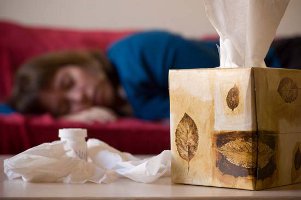 It is far better to focus on building health and strengthening the body’s innate ability to heal rather than to have to fight sickness. The stronger the body is, the greater its immunity and ability to resist or overcome whatever irritant or invader threatens to weaken it.
It is far better to focus on building health and strengthening the body’s innate ability to heal rather than to have to fight sickness. The stronger the body is, the greater its immunity and ability to resist or overcome whatever irritant or invader threatens to weaken it.
The more we understand about what the body needs for health and a strong immune system, the more successful we can be in working with it to naturally eliminate acute illnesses when they occur and keep them from developing into chronic conditions.
What is the Real Cause of Symptoms?
Both health and illness begin at the cellular level. In order to survive and thrive, all cells need oxygen and nutrients and a constant removal of waste material. Illness occurs when the body is not getting the oxygen and nutrients it needs. Toxins build up in the system and become a source of irritation to the body. This irritation, whether chemical or microbial, can damage tissues and produce inflammation. In response to inflammation, the body’s cells release irritating substances into the surrounding tissues, which causes excess fluid from the blood stream to pool into the tissues. This action results in a slow-down of the exchange of oxygen and nutrients the cells need for health.
In order for the body to become well, it must be able to eliminate any toxic accumulation that creates inflammation. It does so through four primary channels of elimination – the colon, lungs, kidney and skin. If one channel cannot handle the excess waste, then another one that is stronger must take up the slack.
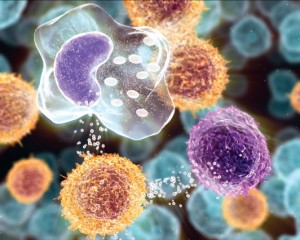 When the elimination of toxins occurs through the gastrointestinal tract, the result may be nausea, diarrhea or vomiting. If the lungs or sinuses are the channel, sinus drainage, runny nose, coughs and other forms of respiratory congestion may be experienced. Should it be the urinary system, frequent or burning urination or other signs of kidney or bladder distress may occur. If excess elimination of toxins occurs through the skin, the result could be body odor, excess perspiration, pimples, acne, rashes, or hives.
When the elimination of toxins occurs through the gastrointestinal tract, the result may be nausea, diarrhea or vomiting. If the lungs or sinuses are the channel, sinus drainage, runny nose, coughs and other forms of respiratory congestion may be experienced. Should it be the urinary system, frequent or burning urination or other signs of kidney or bladder distress may occur. If excess elimination of toxins occurs through the skin, the result could be body odor, excess perspiration, pimples, acne, rashes, or hives.
In other words, most of the symptoms we experience from acute disease consist of the immune system’s response to the illness rather than illness itself. The immune system has a variety of defense mechanisms that protect the body against toxic or irritating substances. When we suppress symptoms, we suppress the body’s efforts to get rid of the toxic waste by plugging up that channel of elimination. In so doing, we weaken the ability of the body to do what it needs to do to rid itself of the irritant and recover. Because the cause is not dealt with, the body is forced to try another route to eliminate the toxins. This may generate a new set of symptoms and only prolongs the time it takes for the body to heal.
The Defensive Lines of the Immune System
The skin and mucous membranes of the lungs and gastrointestinal tract comprise the first line of defense to protect the body against harmful bacteria, viruses and other irritants. It is thought that as much as 70 percent of the ability of our immune system to protect us against infection or disease from harmful microorganisms is because of this defensive line. This protective barrier can thought of as one long continuous tube, with both external and internal sides of it serving to keep that which is harmful from entering the body or blood stream and 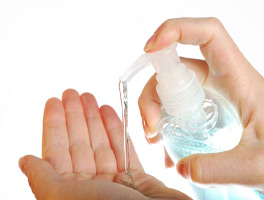 creating damage to the tissues and organs.
creating damage to the tissues and organs.
FIRST LINE OF DEFENSE
Skin
Externally, the skin serves as a physical barrier to keep out dirt, microbes and toxic chemicals from the environment. Although unseen, the skin possesses its own beneficial microorganisms in addition to an acid mantle covering its surface that disfavors the growth of harmful microorganisms. Antibacterial soap products destroy the acid mantle on the skin and actually make it more prone to infection. Natural products, however, maintain the skin’s natural protection and balance the pH so that organisms can no longer grow (versus killing them directly). As long as the skin is healthy and undamaged, it resists infection. It is only when that protective layer is breeched that a hole is produced in the body’s defenses.
Respiratory Tract
Mucous membranes that line the respiratory and digestive track form a protective layer that serves the same function as the skin, only internally. This mucous membrane lining is critical to maintaining the defense of the body. The respiratory system utilizes cilia (hair-like structures on the surface of mucous membranes) and mucus to trap particles that enter through the air we breathe as well as mechanisms like coughing and sneezing to rid the body of inhaled irritants and microbes.
When irritants 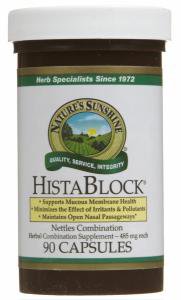 damage the tissues, they release histamines that dilate the blood capillaries and allow excess fluid to enter the tissue spaces. The excess fluid drains out onto the surface of the mucus membranes in an effort to flush the irritants away. Sinus drainage, watery eyes, sneezing, post-nasal drip and coughing are just different ways the body uses to flush irritants through the respiratory system. If you stop the cough or dry up the runny nose, your body has no way of cleaning out the things that are irritating it.
damage the tissues, they release histamines that dilate the blood capillaries and allow excess fluid to enter the tissue spaces. The excess fluid drains out onto the surface of the mucus membranes in an effort to flush the irritants away. Sinus drainage, watery eyes, sneezing, post-nasal drip and coughing are just different ways the body uses to flush irritants through the respiratory system. If you stop the cough or dry up the runny nose, your body has no way of cleaning out the things that are irritating it.
The focus should be on helping the body to eliminate the toxins it is trying to expel. Common medications typically dry up secretions, which suppress the flushing action and inhibit the body’s first line of immune defense. Herbs with expectorant action promote mucus secretion and help the body expel irritants trapped in the lungs or sinuses. Decongestant herbs are useful for breaking up and thinning mucus that has thickened so it can be more easily eliminated.
Respiratory allergies occur because of hypersensitive immune reactions on the mucus membranes when an allergen comes into contact with an antibody (a chemical produced by the body to sequester or neutralize an offending substance). When specialized cells (mast cells) burst, they trigger an inflammatory response that releases chemicals (histamine and bradykinin) and excess mucus is produced as a means to flush the irritant. In this case, you would use herbs that act as natural antihistamines and mast cell stabilizers to inhibit them from bursting. In next month’s article, you will learn more specifically which herbs or combination of herbs to use to assist the body with its healing efforts in all of the categories related to symptoms of acute illness.
Gastrointestinal Tract
The fact that problems in the digestive tract greatly affect respiratory health is indicative of the close connection between these two systems. The body will use the respiratory tract as a channel of elimination for excess toxins when the large intestine does not function as it should.
Also, there are high concentrations of mast cells (cells where antigen and antibody reactions take place) in the intestinal tract. Allergic reactions in the intestinal tract from foods such as dairy and grains, that are difficult for the body to break down, will also increase irritation in the mucus membrane lining of the respiratory passages. Natural remedies that boost the capacity of the gastrointestinal tract also work to aid respiratory problems.
Hydrochloric acid in the stomach serves as a line of defense of the immune system since it destroys microbes in the food we eat that could infect the body. This is one of the reasons acid blocking or neutralizing drugs that lower or inhibit the production of stomach acid are so bad for your overall health. In addition to the acid in our stomach, the enzymes from our pancreas and beneficial bacteria in our intestines destroy many harmful organisms and protect us against yeast and fungal overgrowth.
Since most of what comes into the body that should not be there comes in through the digestive tract, it is extremely important to maintain the integrity of the mucus lining of the small intestine. It is through this mucosal lining where anything that makes it past the stomach is absorbed into the bloodstream to be carried to other parts of the body.
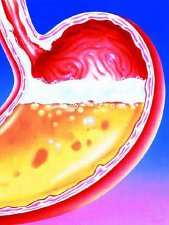 When microorganisms enter the body through the lungs or intestinal tract, the body takes a reading of what is passing through and puts out “wanted” posters to alert the white blood cells of the immune system so they know what they are looking for to destroy. Thus the mucous membranes play an important role in immune defense.
When microorganisms enter the body through the lungs or intestinal tract, the body takes a reading of what is passing through and puts out “wanted” posters to alert the white blood cells of the immune system so they know what they are looking for to destroy. Thus the mucous membranes play an important role in immune defense.
More and more studies and evidence point to a clear link between many types of disease and the breakdown of the mucosal lining of the intestinal tract due to inflammation and increased intestinal permeability. The latter condition is the term used in conventional medicine to describe the intestinal lining becomes punctured with “holes” - a condition that is more commonly referred to as “leaky gut” syndrome. When there is inflammatory damage to the mucosal lining, material that should not leave the digestive system gets into the bloodstream, creating allergic and auto-immune reactions as well as other health problems.
Some of the major factors that breach this first line of defense and cause damage that results in inflammation to intestinal membranes are antibiotics, food allergens, drugs and other chemicals, and microorganisms. Herbs and micronutrients that work to reduce inflammation and heal irritated tissues help to nourish and rebuild intestinal mucosa and increase the ability of the mucous membranes to “sift and sort” what should or should not enter the bloodstream.
SECOND LINE OF DEFENSE
Among its many functions, the liver plays an important role in the immune system, especially when the digestive organs are overloaded. Toxins from the poorly digested food end up being absorbed and carried to the liver, which acts as a filter to neutralize harmful sucstances that pass through the intestinal membranes.
If the body lacks the nutrients the liver needs to conduct its detoxification processes, the liver too can become irritated and inflamed from an overwhelming load of toxins. One way that it responds is to unload the extra toxins through the gallbladder, which can lead to symptoms of nausea, vomiting, diarrhea and abdominal pain. Whatever is not eliminated through those means usually ends up back in general circulation, where it may cause the person to experience any number of symptoms including abdominal gas and bloating, headaches (especially migraines), skin eruptive diseases (acne, rashes, hives, and eczema), PMS issues, and swollen lymph nodes.
As with the intestinal tract, nature provides herbs that nourish and support the liver and better enable it to flush irritants. In addition, various supplements can be taken to provide the nutrients the liver must utilize for the phases of its detoxification processes. Another important way to give the liver and digestive system the 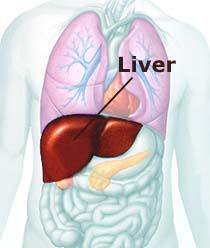 opportunity to rest and repair themselves is to do a periodic fast with either just water or fresh fruit or vegetable juices. This helps to heal and rebuild the intestinal lining by giving it a break from what is irritating it.
opportunity to rest and repair themselves is to do a periodic fast with either just water or fresh fruit or vegetable juices. This helps to heal and rebuild the intestinal lining by giving it a break from what is irritating it.
THIRD LINE OF DEFENSE
The body’s third line of defense is the major glands that make up the glandular system such as the thyroid, adrenal, pituitary and reproductive glands. If the liver cannot handle all of the excess of toxins it reabsorbs from the intestinal tract via the bloodstream, then the toxins get into the general circulation and make the blood impure. When this occurs, the endocrine system kicks into gear to stimulate elimination of these toxins through other channels.
For instance, the adrenal glands may cause an increase in elimination through the urinary and reproductive systems whereas the thyroid gland might force elimination through the skin and mucous membranes. Extra support may be needed to give greater aid to the kidneys and skin in their effort to eliminate these extra toxins in these cases. If people have trouble with these glands being weak, working on dietary improvements and rebuilding their colon and liver may take stress off of them and make them stronger. The detoxification of these channels of elimination can also be helped through the use of specific types of herbs.
Conclusion
By understanding more about how God designed our immune system to function and why our bodies develop the symptoms we sometimes experience, we can better cooperate with what the body is trying to accomplish to get us well. Rather than taking medications that work contrary with what the body needs to do, we can instead use the herbs and natural remedies God placed on this earth for our healing. Next month's article will cover more specifically the role herbs can play in helping the body to recover from different forms of acute illness, especially colds and flu that people most commonly experience.
Sources:
Food is Your Best Medicine by Dr. Henry Bieler
Fundamentals of Natural Healing by Steven Horne
Copyright © 2008-2015 Lucinda Bedogne, CNHP, CNC
Post Your Comment...
|
|
||||||||||||


